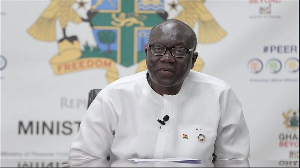The continuous payment of enhanced public sector salaries could render Ghana bankrupt if stabilising measures are not adopted to arrest the unsustainable trend, President John Mahama has said.
Delivering his first State of the Nation address in Parliament on Thursday, President Mahama was silent on the all-important issues of the protection of the environment and investment in research and development.
The address, the first in the sixth Parliament of the Fourth Republic, was boycotted by the New Patriotic Party (NPP) Minority.
President Mahama expresses fears that the high rate of growth of the wage bill has reached a point where it is squeezing out critical investments in the budgetary allocation of goods and services and capital expenditures.
“Unless we tackle this issue decisively, we may soon reach a point where not much will be left to provide the much needed road, bridges, ports, schools, clinics and water infrastructure we need to develop our economy”.
He observes that the personnel emoluments part of the national budget has more than tripled in the last three years, skyrocketing from GHC2.5 billion to an estimated GHC8 billion in 2013.
“This has been mainly due to the Single Spine Salary Scheme (SSSS). We now spend a staggering 60.9 per cent of our entire national revenue to pay public sector salaries.
“Mr Speaker, this is almost double the globally accepted prudent level of between 30 to 35 per cent. While we remain committed to boosting the morale of public sector workers of Ghana, whose incomes were low compared to their counterparts in the private sector. It is in that spirit that we undertook the salary rationalization with a view to enhancing fairness, productivity and motivation in the public sector,” the president said.
Speaking on the fiscal challenge buffeting the country like a tropical rainstorm, the President says it is time for serious rethinking about the level of wages in relation to national competiveness and related productivity issues.
He notes that the unsustainable payment of huge salaries, wages and allowances are more worrying because as the government struggles to settle the rising wage bill, many public sector workers continue to demand increased wages and threaten strike actions and sit-downs as the state, through the Fair Wages and Salaries Commission is negotiating to meet their demands.
General News of Friday, 22 February 2013
Source: Public Agenda













